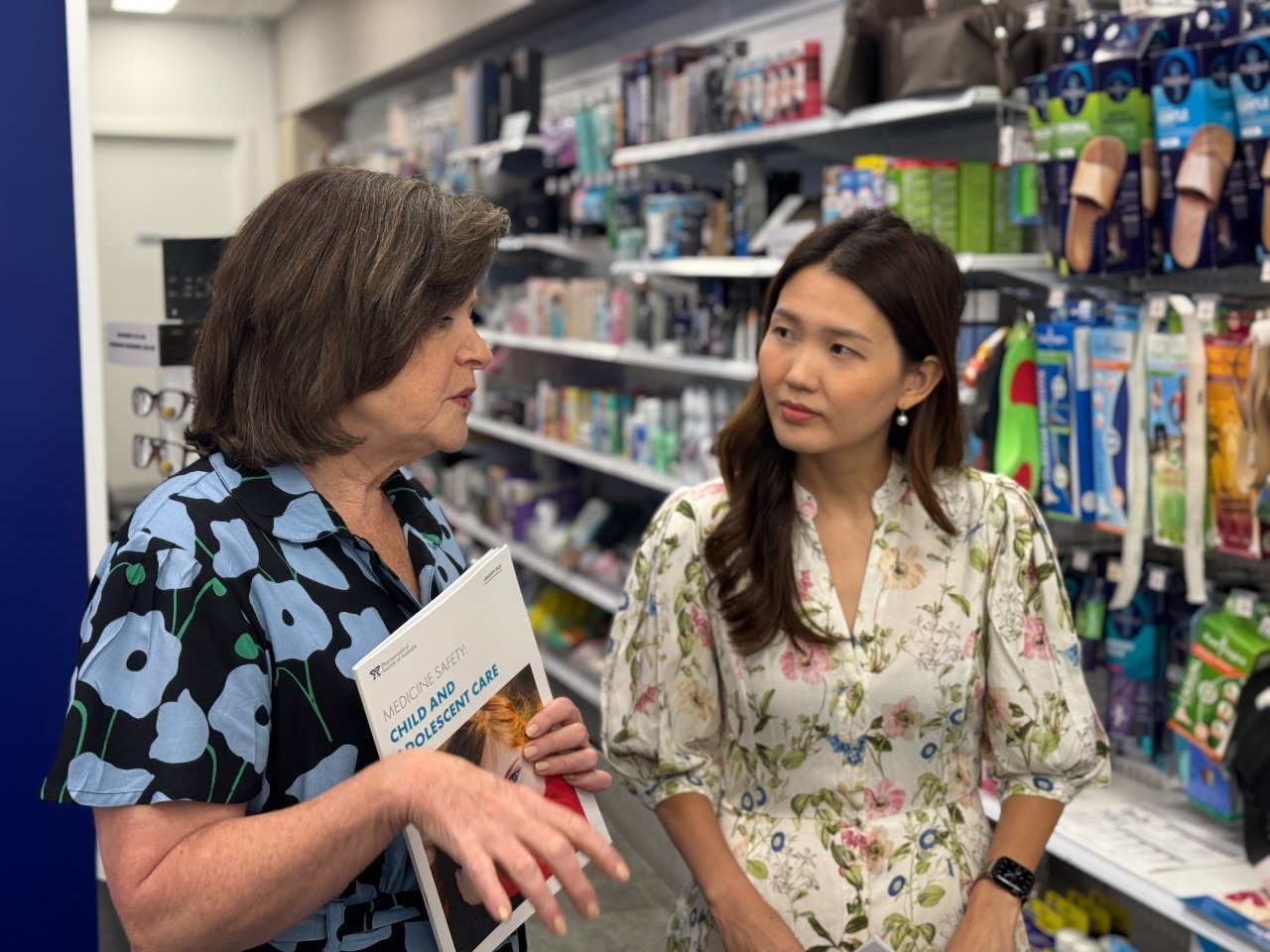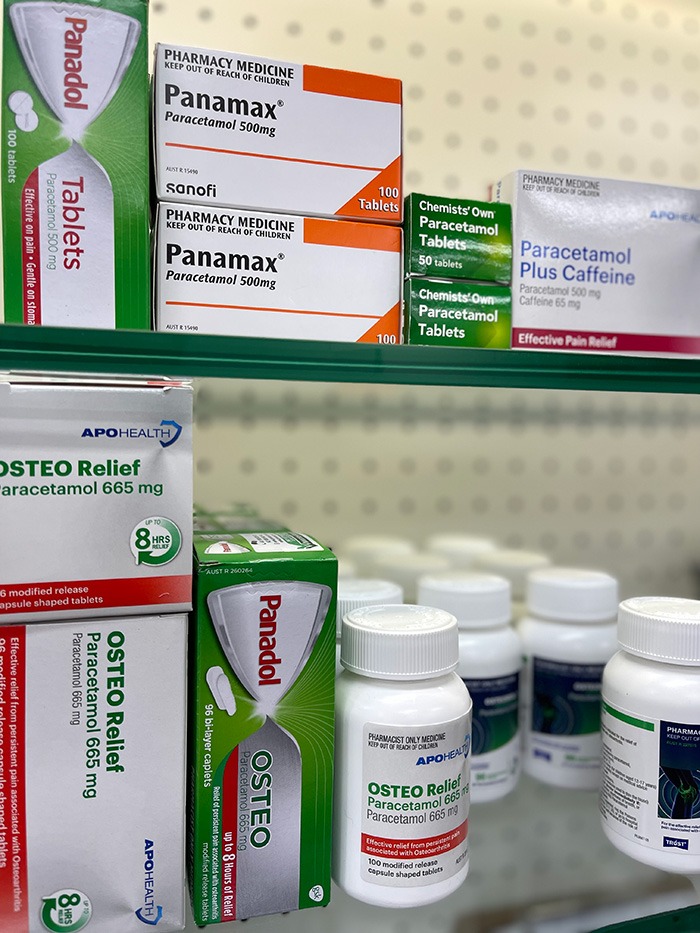Stress and burnout are common among health professionals, especially pharmacists. From taking adequate breaks and rest periods to professional education, Pharmacists’ Support Service (PSS) Executive Officer Kay Dunkley said there’s a lot that pharmacists and pharmacy owners can do to manage stress and avoid burnout.
According to the National Health and Safety Commission, workplace stress accounts for the longest periods of absenteeism in Australian workplaces. A report released by PSS, Managing Stress in Pharmacy, noted that pharmacists have become conditioned to working 10 to 13-hour days in a noisy and fast-paced environment ‘under a constant bombardment of prescription requests’ – leaving them prone to burnout.1
‘Burnout is basically prolonged stress, and generally that stress that comes from not being well supported,’ Ms Dunkley said.
Burnout has mental and physical health consequences for those dealing with the stress, and is linked with poorer patient outcomes. It also hits a pharmacy’s bottom line.
‘The more staff turnover, the more new staff and recruitment costs, and the worse the overall business performance. It’s financially sound to have a workplace where people are less likely to get burnt out,’ Ms Dunkley said.
While we can all feel exhausted, professionally, from time to time, the warning signs of chronic stress and burnout are different. ‘People find themselves being irritable or out of sorts, they dread going to work, they’re more frustrated with customers,’ Ms Dunkley said.
‘It’s quite common for burnt-out pharmacists to lose compassion for people that come into their pharmacy. Pharmacists need to be attentive to how they feel about going to work or their customers.’
To avoid burnout, Ms Dunkley points to practices that may sound simple, but are highly effective: ‘Firstly, pay more attention to your self-care – good eating, good sleep, seeing a councillor if you are feeling stressed, looking after your mental health, having activities outside work that you enjoy.’
Adequate time away from work and work-related activities are also vital for decompressing and having a break from on-the-job stressors. ‘I know that pharmacists’ rosters vary, but you do need to try and at least two consecutive days off on a regular basis. When you only have one day you tend to catch up on everything you’ve missed while working. But two days means you have a day to relax or do something you enjoy,’ she said.
From the top down
For owners and managers, showing appreciation and creating a positive atmosphere at work are important for morale, reducing stress, and keeping a workforce engaged.
‘Feeling valued is really important to staff wellbeing. It’s hard in pharmacy where customers can come in and be critical, but those times of appreciation where a customer says “this really helped, I appreciate that” – those are the sorts of things that protect against burnout.
‘As a pharmacy, having the celebrations, having the bar of chocolate that everyone can share on a busy day, these are important,’ Ms Dunkley said.
Simple measures like a compliments box or a notice board to post positive feedback can be effective. Overtime and missed breaks will still happen, but showing appreciation when staff have gone the extra mile is vital to avoiding burnout. ‘It all creates that positive workplace culture where people feel valued and appreciated,’ Ms Dunkley said.
When it comes to managing stress and avoiding burnout, all parties have responsibilities. ‘Individuals need to take responsibility for their own wellbeing. But, as an occupational health and safety issue, it’s important that a pharmacy owner or manager ensure a safe workplace, adequate staffing, and that the staff are suitably trained for the work,’ she said.
Role definition and communication around organisational change are also key. It’s important that pharmacists and pharmacy staff understand their role and that they are not tasked with conflicting responsibilities. Any changes to that role or the organisational structure should be clearly communicated.1
Continuing education, upskilling, and attending conferences are all effective methods to combat burnout. ‘When you are learning, you are generally more satisfied and stimulated, so the constant stimulation of learning new things is important for our general sense of wellbeing,’ Ms Dunkley said.
Such education and workforce development are part of Action 7 of the Pharmacists in 2023 report. By supporting staff with training or upskilling in new services, owners and managers can empower pharmacists, boost confidence, and ensure that staff have the skills and knowledge to meet daily challenges and succeed.
For pharmacists struggling with chronic stress, burnout, or other issues, the PSS is an essential resource with a dedicated hotline for pharmacists, by pharmacists.
‘The people who take all the calls are pharmacists or retired pharmacists, and they’ve all been put through training to provide support over the phone. Their main role is to listen and help pharmacists work through their situation,’ Ms Dunkley said.
She said the afore-mentioned Managing Stress in Pharmacy report, available online, takes owners and managers through the different aspects of stress in pharmacy and covers practical solutions.
‘It helps someone look at their pharmacy, see what issues are arising for their staff, what the possible causes are and how they can be addressed,’ she said.
The PSS is a not-for-profit organisation relying on volunteers and donations. Readers who are distressed can contact the Pharmacists’ Support Service on 1300 244 910.
References
- Pharmacists’ Support Service. Managing Stress in Pharmacy 2018. At: https://ajp.com.au/wp-content/uploads/2018/03/Managing-Stress-in-Pharmacy-Australian-version-March-2018.pdf



 PSA National President Associate Professor Fei Sim and Ged Kearney, Assistant Minister for Health and Aged Care Assistant Minister for Indigenous Health[/caption]
PSA National President Associate Professor Fei Sim and Ged Kearney, Assistant Minister for Health and Aged Care Assistant Minister for Indigenous Health[/caption]




 Pharmacists can help to reduce the amount of surplus paracetamol available in homes by being ‘champions for the change’, said Peter Guthrey MPS, PSA Senior Pharmacist – Strategic Policy.
Pharmacists can help to reduce the amount of surplus paracetamol available in homes by being ‘champions for the change’, said Peter Guthrey MPS, PSA Senior Pharmacist – Strategic Policy.

 What are the main vaccine-preventable diseases of concern for VFR travel?
What are the main vaccine-preventable diseases of concern for VFR travel?





